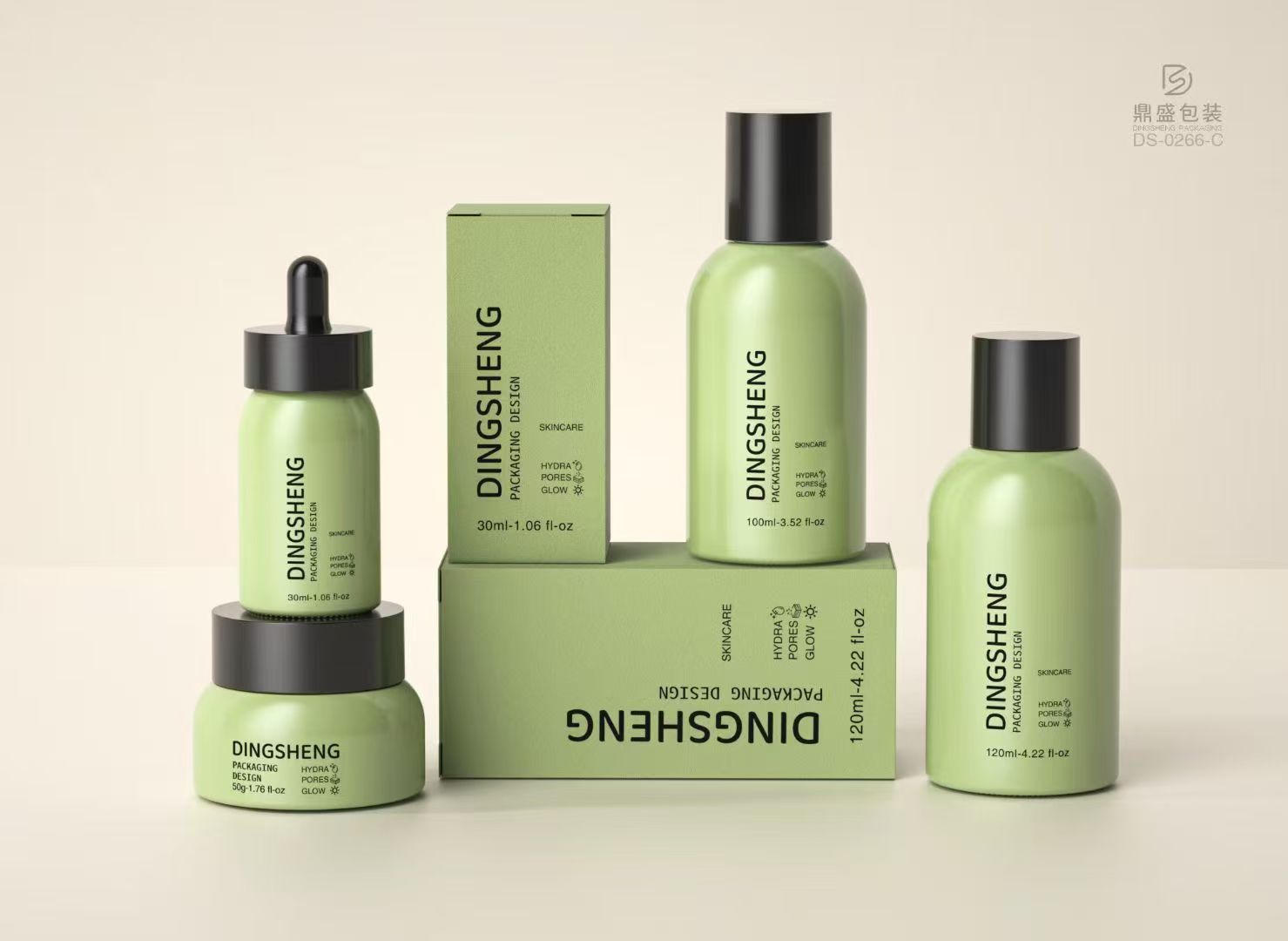Cosmetic Glass Bottles — Sustainability & Certifications | Dingsheng Glass
Sep 11, 2025
Cosmetic glass bottles — Sustainability & Certifications
Cosmetic glass bottles are widely adopted by brands seeking a durable, premium and recyclable packaging option. This article discusses glass recyclability, environmental benefits, industry certifications you should expect, and how suppliers like Dingsheng support sustainable packaging programs.
Are glass cosmetic bottles recyclable and sustainable?
Infinite recyclability of glass
Glass can be recycled repeatedly without loss of material quality. This closed-loop capability sets glass apart from most plastics, which degrade after multiple recycling cycles. Recycling glass reduces energy consumption and raw material use, making it an environmentally responsible packaging option.
Energy and emissions benefits
Using cullet (recycled glass) in production lowers furnace temperatures and decreases energy needs by up to ~30% compared with virgin raw materials. That energy reduction often translates to lower CO₂ emissions per bottle.
Consumer perception and market demand
Consumers increasingly associate glass packaging with sustainability and premium quality. Glass packaging helps brands communicate eco-credentials and strengthens loyalty among environmentally conscious buyers.
What environmental or safety certifications should glass bottles comply with?
ISO 9001 — quality management
ISO 9001 demonstrates a manufacturer’s consistent quality systems. Dingsheng’s ISO 9001 certification confirms process control and traceability across mold manufacturing, production and finishing.
FDA compliance
For products sold in the U.S., packaging in contact with cosmetic formulations must not contaminate the product. Glass is inherently non-leaching, but closures and liners should be validated for compliance with FDA guidance.
REACH and EU regulations
Glass bottles and their decorations must comply with EU chemical regulations (REACH). This confirms that no restricted substances are present or migrating from coatings or printed finishes.
GMP (Good Manufacturing Practices)
GMP certification is important for brands that require hygienic manufacturing environments. GMP focuses on traceability, hygiene and consistent production conditions — important for cosmetic and pharmaceutical grade packaging.
Other sustainability standards
ISO 14001 — Environmental management systems.
EcoVadis — CSR and sustainability ratings for suppliers.
Carbon footprint verification — reporting and certification of emissions reductions.
Challenges and practical considerations for sustainable glass packaging
Weight and transport emissions
Glass is heavier than plastic, increasing transport emissions. Mitigation approaches include lightweighting bottle design and optimizing palletization to reduce freight impact.
Breakage and secondary packaging
Glass requires protective packaging for shipping. Designing secondary packaging that is recyclable and right-sized helps reduce waste while protecting bottles in transit.
Recycled glass (cullet) quality
Using high-quality sorted cullet reduces impurity risks. Where cullet supply is variable, blending with virgin glass ensures consistent color and strength.
How Dingsheng supports sustainability and certifications
Dingsheng (Guangdong) Glass Technology Co., Ltd. integrates sustainable practices into production:
Use of cullet and optimized furnace operation to reduce energy use.
ISO-9001 certified processes for consistent quality and reduced waste.
Surface finishing processes (spraying, screen printing, hot stamping) designed to meet REACH and other regulatory checks.
Ability to provide documentation and testing to support brand compliance with FDA, REACH and GMP requirements.
Practical recommendations for brands
Ask suppliers for certification evidence (ISO, GMP, material safety data and compliance reports).
Consider lightweight glass designs to balance sustainability with logistics.
Plan secondary packaging that is recyclable and right-sized for transit protection.
Specify percentage of cullet if recycled content is a brand priority and verify supplier QC for impurities.
Dingsheng can collaborate to design lightweight, recyclable cosmetic glass bottles with supporting documentation to meet retailers’ and regulators’ expectations.
Conclusion
Cosmetic glass bottles deliver strong sustainability advantages due to infinite recyclability and high consumer acceptance. Certifications such as ISO-9001, FDA compliance evidence, REACH conformity and GMP processes help brands ensure safety and demonstrate environmental responsibility. Working with experienced, certified manufacturers like Dingsheng ensures packaging that is both sustainable and compliant.

 الشبكة المدعومة
الشبكة المدعومة